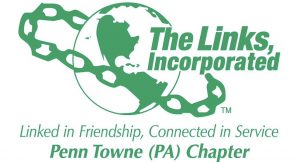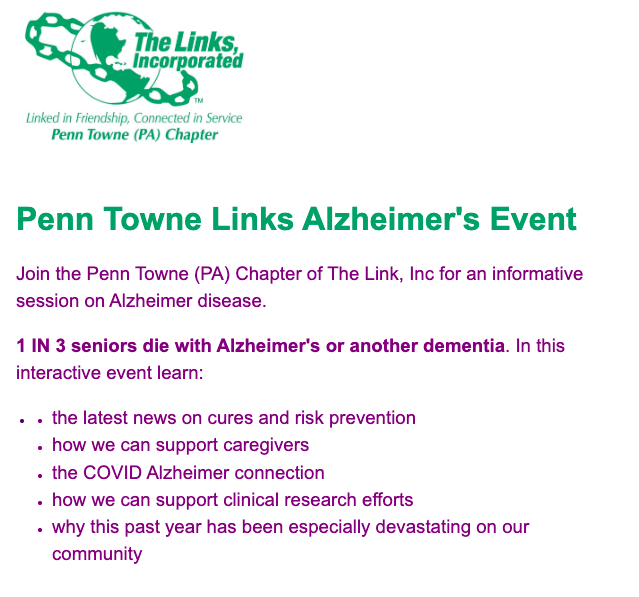
Clay Jacobs, Executive DirectorAlzheimer’s Association- Greater PA Chapter
“Doing is a quantum leap from imagining”
 Dr. Stephanie Johnson is a licensed clinical and research neuropsychologist with a private clinical practice in the Washington DC area where she specializes in the assessment and diagnosis of neurocognitive disorders. She has served as a consultant for both the Wisconsin Alzheimer’s Institute, UW-Madison, and for the Stroke Disparities Program with Georgetown University Hospital. Dr. Johnson received extensive training in the area of differential diagnosis of cognitive disorders while completing a post-doctoral fellowship at the Joseph and Kathleen Bryan
Dr. Stephanie Johnson is a licensed clinical and research neuropsychologist with a private clinical practice in the Washington DC area where she specializes in the assessment and diagnosis of neurocognitive disorders. She has served as a consultant for both the Wisconsin Alzheimer’s Institute, UW-Madison, and for the Stroke Disparities Program with Georgetown University Hospital. Dr. Johnson received extensive training in the area of differential diagnosis of cognitive disorders while completing a post-doctoral fellowship at the Joseph and Kathleen Bryan
Alzheimer’s Disease Research Center (Bryan ADRC) at Duke University Medical Center. After the completion of her fellowship, Dr. Johnson went on to join the medical faculty at the Johns Hopkins Hospital with the Department of Neurology. While at Johns Hopkins, she broadened the scope of her research to include the exploration of the physiological effects of stress on the development of Alzheimer’s disease in ethnically diverse populations. Dr. Johnson also continued to provide differential diagnosis to various patient populations in the Cortical Laboratory at the Johns Hopkins Hospital. After her tenure at Johns Hopkins, Dr. Johnson opened two clinics in the Washington DC area focused on clinical neuropsychological assessment of neurological disorders.
Dr. Johnson recently wrote about the impact of COVID-19 and Alzheimer’s on elderly communities of color. In the article she talks about why that is the case, and gain insights on handling this crisis as best practices are developed.
COVID-19 has profoundly impacted the elderly population. Although Alzheimer’s disease (AD) does not appear to increase an individual’s risk of contracting COVID-19, Alzheimer’s has had a significant effect on a population that suffers from additional underlying illnesses, which can complicate the clinical manifestation of the virus. What has been particularly notable is COVID-19’s effect on elderly communities of color diagnosed with Alzheimer’s Disease


Recent Comments